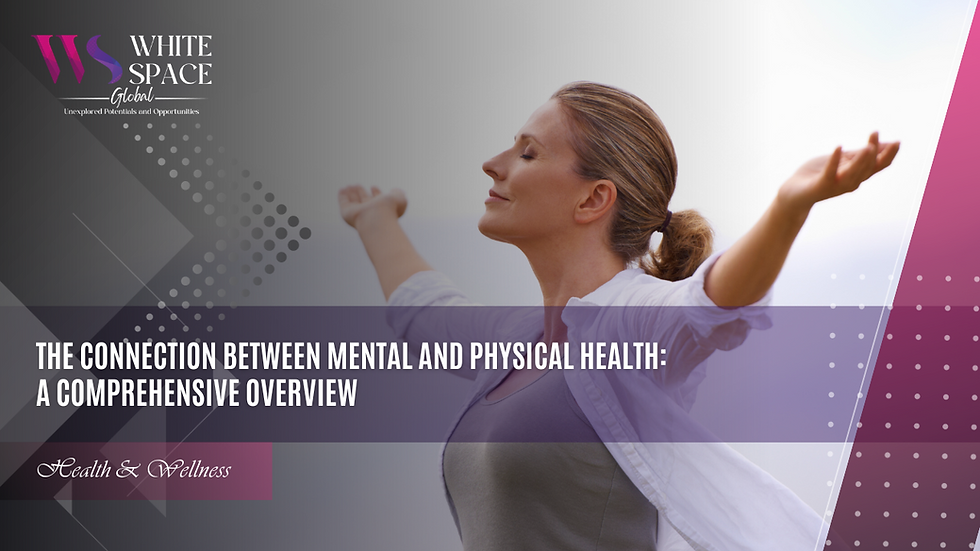
In the pursuit of overall well-being, it's easy to overlook the intricate connection between mental and physical health. This blog aims to provide a comprehensive overview of the intricate relationship between mental and physical health, shedding light on how one impacts the other and why it's crucial to nurture both.
The Mind-Body Connection
1. The Biopsychosocial Model
The biopsychosocial model is a framework that acknowledges the interplay between biology, psychology, and social factors in influencing health. This model highlights how physical health issues can lead to mental health problems, and vice versa.
2. Stress and the Body
Stress, a common mental health challenge, has significant physical implications. When you experience stress, your body releases stress hormones like cortisol and adrenaline, which can affect various bodily functions.
Mental Health's Impact on Physical Health
1. Immune System
Research has shown that mental health conditions like depression and chronic stress can weaken the immune system, making individuals more susceptible to infections and diseases.
2. Cardiovascular Health
Conditions like anxiety and depression are associated with an increased risk of heart disease. The physiological response to chronic stress, such as elevated blood pressure and inflammation, can contribute to cardiovascular problems.
3. Pain Perception
Mental health can influence how we perceive physical pain. Conditions like depression can exacerbate the perception of pain, making it more challenging to manage and leading to a lower pain threshold.
Physical Health's Impact on Mental Health
1. Chronic Illness and Mental Health
Living with a chronic illness can take a toll on mental health. The stress, pain, and uncertainty associated with chronic conditions can contribute to conditions like depression and anxiety.
2. Medication Side Effects
Some medications prescribed for physical health conditions can have side effects that affect mental health. For example, certain painkillers or steroids can lead to mood swings and anxiety.
3. Self-Esteem and Body Image
Physical appearance and health can impact self-esteem and body image. Conditions that alter physical appearance, like skin disorders or obesity, can lead to emotional distress and affect mental health.
The Importance of Holistic Health
Understanding the intricate relationship between mental and physical health underscores the importance of a holistic approach to well-being. Here are some strategies to nurture both aspects of health:
1. Regular Exercise: Physical activity not only benefits the body but also releases endorphins, which improve mood and reduce stress.
2. Balanced Diet: Eating a nutritious diet can positively impact both mental and physical health, providing essential nutrients for brain function and overall vitality.
3. Stress Management: Learning to manage stress through techniques like mindfulness, meditation, and relaxation exercises can promote mental and physical well-being.
4. Social Support: Maintaining strong social connections can provide emotional support during difficult times, benefiting both mental and physical health.
Conclusion
The connection between mental and physical health is undeniable. Neglecting one can have a detrimental impact on the other. Recognizing this interplay and taking proactive steps to nurture both aspects of health is crucial for overall well-being. A holistic approach to health that considers the mind-body connection is the key to living a happier, healthier life.


Comments